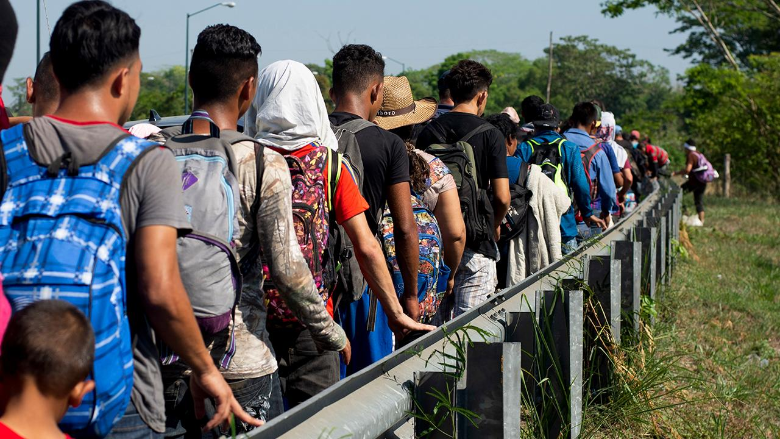A new wave of criticism has been directed at the Biden-Harris administration, this time focusing on their alleged expansion of Medicaid benefits to illegal immigrants. According to Hayden Dublois, a data analyst at the Foundation for Government Accountability (FGA), the current administration has delivered what he calls the “biggest handout to illegal aliens in American history.” Dublois’ claims, published in a Fox News opinion piece, shine a spotlight on what he describes as a crumbling social welfare system being strained even further by these new policies.
The heart of the controversy is the Biden administration’s decision to extend Medicaid coverage to illegal immigrants. Medicaid, a program designed to provide health insurance to low-income citizens, has always been a source of political debate, but Dublois argues that the Biden-Harris administration has pushed the program beyond its intended scope. The expansion, he alleges, is setting a dangerous precedent and placing an increased burden on American taxpayers.
Citing data from nine states, Dublois points out that the number of illegal immigrants receiving Medicaid has surged by 500% between 2019 and 2023. Today, he estimates that more than 100,000 illegal immigrants nationwide are on Medicaid, costing taxpayers around $1 billion annually. This massive increase, he claims, signals that the problem is not only growing but will likely get worse in the years to come.
At the core of Dublois’ argument is a regulatory change made by the Biden administration’s Department of Health and Human Services (HHS). Under previous Medicaid rules, undocumented applicants were given a 90-day grace period to provide proof of citizenship. If they failed to submit the required documentation within that time, they would typically be removed from the program. However, a new federal regulation, which came into effect in June 2024, allows for the indefinite extension of these 90-day grace periods.
This change, Dublois argues, essentially opens a “loophole” that allows illegal immigrants to remain on Medicaid indefinitely, even if they never provide proof of citizenship. It also prevents states from removing ineligible individuals from the program, placing an even greater strain on an already overburdened system.
Dublois warns that this new Medicaid policy could exacerbate the already severe border crisis. By providing free healthcare benefits, the administration is creating what he calls an “added incentive” for illegal immigration. He fears that as news of this policy spreads, it will encourage more migrants to make the dangerous journey across the southern border, knowing that they could potentially access healthcare without proving legal status.
“As the word spreads, it may encourage an even bigger rush at the southern border,” Dublois wrote. His concerns reflect broader anxieties over the state of border security and the perceived inability of the federal government to manage immigration effectively.
The criticism of the Biden-Harris administration’s Medicaid expansion is not just about dollars and cents; it touches on a deeper ideological divide about what the role of government should be in serving its citizens versus non-citizens. Dublois argues that nations, at their core, exist to serve the needs of their citizens, not those of individuals who enter the country illegally. For him, this policy is not only misguided but also a blatant affront to American citizens who rely on Medicaid for their healthcare needs.
He goes on to suggest that affluent liberals, many of whom support the Biden administration’s policies, are more interested in showcasing their moral superiority than in addressing the real needs of ordinary Americans. “Affluent liberals… love illegal immigration, and they love putting illegal aliens on Medicaid, in part because it allows them to parade their faux compassion,” Dublois writes. He contends that this show of compassion comes at the expense of regular citizens who are left to foot the bill.
While the debate over Medicaid expansion and immigration is nothing new, the changes introduced by the Biden administration have reignited the conversation. Critics like Dublois believe that the Biden-Harris policies will lead to further strain on social services, increased illegal immigration, and ultimately, more costs for American taxpayers.
Supporters of the administration, however, argue that expanding access to healthcare is a moral imperative, especially in light of the humanitarian crises at the border. They maintain that ensuring all individuals—regardless of citizenship status—have access to healthcare can lead to better public health outcomes and a more humane approach to immigration.
In the end, the controversy surrounding Medicaid expansion to illegal immigrants raises important questions about the direction of U.S. immigration and healthcare policy. Should the government prioritize the needs of its citizens, or should it extend compassion and aid to those who cross its borders seeking a better life?
For Dublois and others at the FGA, the answer is clear: the nation’s primary duty is to its own citizens. The expansion of Medicaid benefits to illegal immigrants, they argue, is just one more example of how the Biden-Harris administration is undermining that duty. Whether this view will gain traction as the 2024 election approaches remains to be seen, but one thing is certain: the debate over Medicaid, immigration, and national priorities is far from over.



